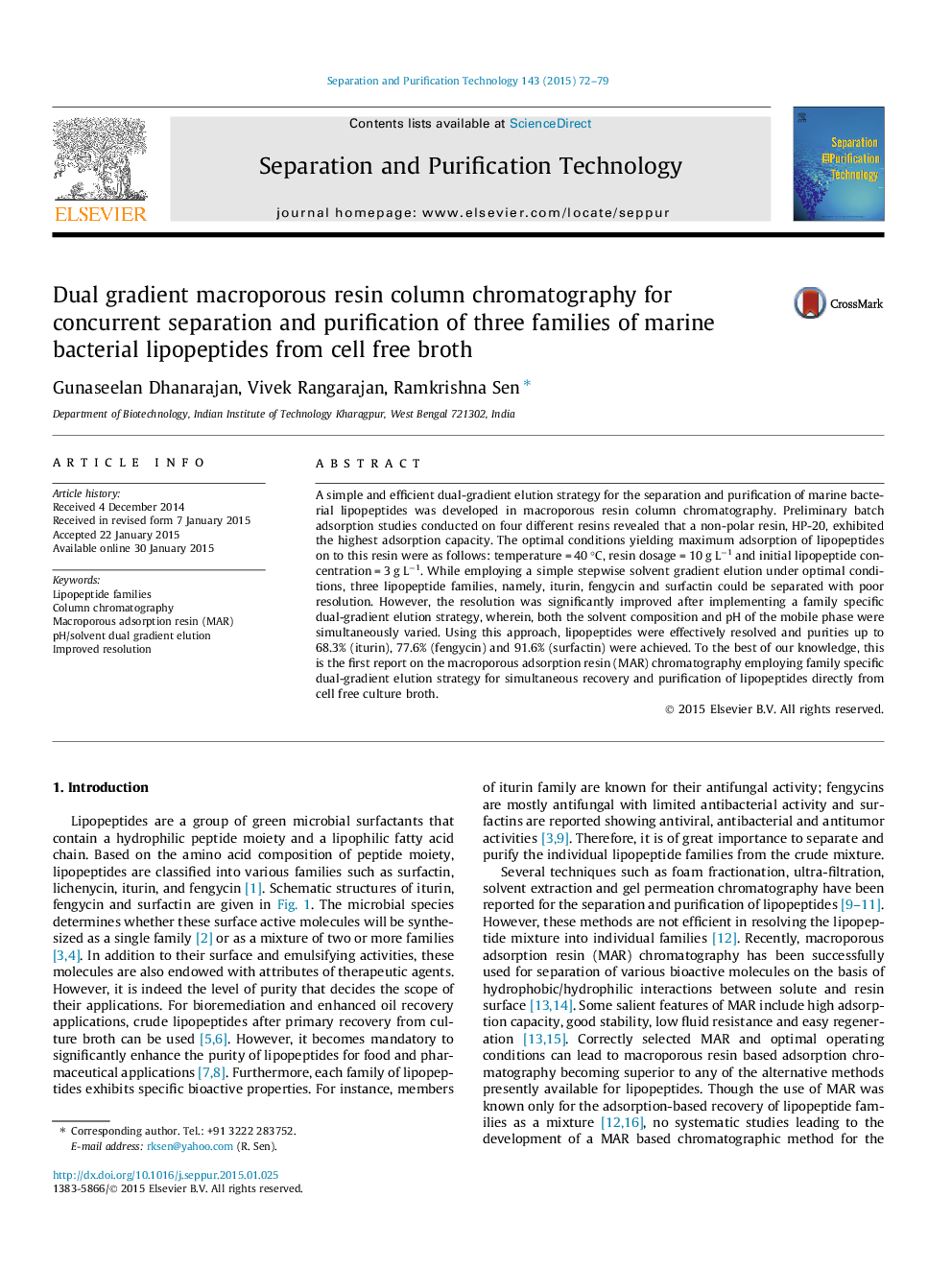| Article ID | Journal | Published Year | Pages | File Type |
|---|---|---|---|---|
| 640542 | Separation and Purification Technology | 2015 | 8 Pages |
•Sorption characteristics of lipopeptides were studied on various macroporous resins.•Factors affecting the static and dynamic adsorption were optimized.•A dual pH-solvent gradient elution strategy was developed.•Established a method for concurrent recovery and purification of lipopeptides.
A simple and efficient dual-gradient elution strategy for the separation and purification of marine bacterial lipopeptides was developed in macroporous resin column chromatography. Preliminary batch adsorption studies conducted on four different resins revealed that a non-polar resin, HP-20, exhibited the highest adsorption capacity. The optimal conditions yielding maximum adsorption of lipopeptides on to this resin were as follows: temperature = 40 °C, resin dosage = 10 g L−1 and initial lipopeptide concentration = 3 g L−1. While employing a simple stepwise solvent gradient elution under optimal conditions, three lipopeptide families, namely, iturin, fengycin and surfactin could be separated with poor resolution. However, the resolution was significantly improved after implementing a family specific dual-gradient elution strategy, wherein, both the solvent composition and pH of the mobile phase were simultaneously varied. Using this approach, lipopeptides were effectively resolved and purities up to 68.3% (iturin), 77.6% (fengycin) and 91.6% (surfactin) were achieved. To the best of our knowledge, this is the first report on the macroporous adsorption resin (MAR) chromatography employing family specific dual-gradient elution strategy for simultaneous recovery and purification of lipopeptides directly from cell free culture broth.
Graphical abstractFigure optionsDownload full-size imageDownload as PowerPoint slide
